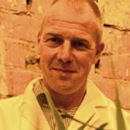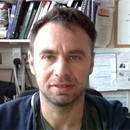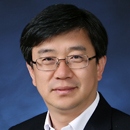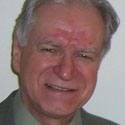Advisory Board and Editors Biotechnology

Gerrit T.S. Beemster
Professor of Biology at the University of Antwerp. Member of the Flemish Science Foundation review board. Editor of the journals Journal of Plant Research, Frontiers in Plant Science and PLOS ONE

Ebba Brakenhielm
INSERM Tenured Researcher in the field of Cardiovascular Research, currently focusing on therapeutic angiogenesis with polymer-based targeted growth factor delivery.
PhD in Tumor Biology (Pr Yihai Cao, Karolinska Institutet, Sweden), and expertise in Adipose tissue angiogenesis. Postdoc at UCLA (Pr Lily Wu) in molecular imaging and tumor lymphangiogenesis field.
Member of European Vascular Biology Organisation, French society for Cardiovascular Research, French society for Angiogenesis Research.

Saverio Brogna
Lecturer and principal investigator at the School of Biosciences of the University of Birmingham, UK. Interested in eukaryotic gene expression and particularly in understanding the links between RNA processing and translation.
At present his group research focuses on understanding nonsense mediated mRNA decay (NMD) and its links with pre-mRNA splicing.

Ornella Calderini
I have a PhD from the University of Vienna, Austria, on plant MAP kinase signalling. Currently I am a staff scientist of the National Research Council at the Institute of Bioscience and Bioresources in Italy. I am curating a mutant collection of the model specie Medicago truncatula. I am using different approaches to understand gene function in several aspects of plant science (e.g development, synthesis of secondary compounds). I have an interest in characterization and valorization of local plant genetic resources.

Tanya Amanda Camacho-Villegas
Tanya Camacho-Villegas is a Researcher for Mexico in the Medical and Pharmaceutical Biotechnology Unit, CIATEJ, A.C., located in Guadalajara, Jalisco, Mexico (2014-present). She is a member of the Mexican National System of Researchers level I. She works in recombinant protein design, cloning, and production (batch and bioreactor scale). She specializes in phage display for isolating single-domain antibodies such as vNAR´s or peptide isolation with diagnostic applications. Recently, she used the vNAR as an immuno-carrier for NPs for theranostics applications for breast cancer and glioblastomas as models.
She has received a BSc in Biology from the Science Faculty, UABC (2004) and a Marine Biotechnology MSc in CICESE (2007) focusing on the selection and validation of vNARs with anti-cytokines properties as candidates for TNFalpha and VEGF165 neutralizing in humans disorders.
She has received a PhD in Molecular Ecology and Biotechnology from the Marine Science Faculty at UABC (2012). She received a distinction in the Ph.D. dissertation
and fellowships from CONAHCYT for MSc, Ph.D., and Postdoc studies. She was the leader of four projects related to biotechnology companies. She was the author of patents related to vNAR as anti-cytokines or immuno-carriers for drug delivery.

Jesús Campos-García
PhD. Jesús Campos-García.
Professor-Researcher of Microbial Biotechnology Laboratory since 2003, at the Research Institute of Biological Chemistry of the Universidad Michoacana de San Nicolás de Hidalgo, México. He has authored over 80 papers in indexed and peer-reviewed journals. He was the recipient of the National Award for Young Researchers in 2008, for the Mexican Academy of Science. He possesses four Patents and several Technological processes transferred into the Industry.
Research areas are related to the study of the mechanisms of interaction of microorganisms such as Pseudomonas aeruginosa with the environment: mechanisms of organic compounds degradation, heavy metals resistance, host-pathogen interaction, microbial nano-bioactive metabolites, and genetic modification of industrial GEMs used for alcoholic fermentation and biofuels.
Awards
•National Award for Young Researchers in 2008, for the Mexican Academy of Science.
•State Award of Scientific Research in 2009, Michoacán State Government, México.
•Grant Marcos Moshinsky 2013-2014, Chemistry-Biological Sciences. Marcos Moshinsky Funding, México.
•Weizmann Award 2015, Nature Science. Mexican Academy of Science, to Randy Ortíz Castro by PhD thesis: Study of the N-acil-L-homoserin lactones and cyclodipeptides from bacteria of Pseudomonas genus in the plant development regulation.
•Member of the Mexican Academy of Science (since 2008).
•Member of the National System of Researchers (S.N.I.) since 1996.

Alberto Carbonell
CSIC Group Leader working at Institute for Plant Molecular and Cell Biology.
Research has focused on the study of different areas of RNA biology in plants and viruses: from the basic understanding on how RNAs regulate gene expression and control or induce diseases to a more applied and biotechnological research aiming to engineer artificial RNAs for the efficient and selective control of plant gene expression or to repress pathogenic RNAs and generate disease resistance.
Current research seeks to develop GMO-free biotechnological tools for crop improvement based on artificial small RNAs.

Elisabetta Ada Cavalcanti-Adam
E. Ada Cavalcanti-Adam is a research group leader at the Institute of Physical Chemistry, University of Heidelberg and head of Central Scientific Facility “Biomaterials and Molecular Biology” at the Max Planck Institute for Intelligent Systems in Stuttgart. Her main research interest is on extracellular stimuli which guide cell structure and functions with a special focus on the role of growth factors on cell adhesion and migration.

Barbara P Chan
Professor of Biomedical Engineering, Mechanical Engineering at The University of Hong Kong.

Albert Cheng
Albert Cheng obtained his BSc in Biochemistry and MPhil in Biology from Hong Kong University of Science and Technology in 2005 and 2007, respectively. He studied neurotrophin signaling and C. elegans developmental genetics. He then pursued his PhD in Computational & Systems Biology at MIT in the labs of Profs Christopher Burge and Rudolf Jaenisch and worked on various topics on epigenetics, gene regulation and alternative splicing in stem cells, reprogramming, cancer metastasis, erythropoiesis and differentiation. Cheng and colleagues identified H3K27ac as a signature for active enhancers. He analyzed alternative splicing in epithetlial-mesenchymal transition, cancer metastasis as well as erythropoiesis and identified splicing factors regulating these processes. He constructed CRISPR-on, an artificial RNA-guided activator based on CRISPR/Cas. After graduating in 2014, he joined the Jackson Laboratory at Bar Harbor, ME, as one of the first JAX scholars where he continued to work on understanding and improving the CRISPR/Cas technology. In July 2015, he started his own lab as an assistant professor at the Jackson Laboratory for Genomic Medicine campus at Farmington, CT.

Doil Choi
Professor of the Department of Plant Science and Director of Plant Genomics and Breeding Institute of Seoul National University, Korea

Piotr Chomczynski
Founder, Molecular Research Center, Inc. (MRC). Inventor of the single-step method of RNA isolation. Active in Science to Business projects.

